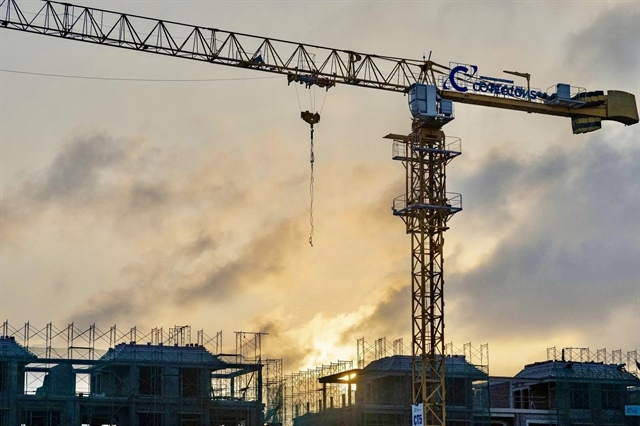PetroVietnam Fertilizer to build plant and sell shares, CEO says
PetroVietnam Fertilizer to build plant and sell shares, CEO says
PetroVietnam Fertilizer & Chemicals Corp. plans to invest $230 million in adding and diversifying production to boost revenue as its parent considers selling shares in Vietnam’s fourth-biggest manufacturer by market value.

Vietnam’s biggest producer of so-called prilled urea in the world’s second-biggest exporter of coffee and rice will expand into another type of fertilizer that’s in greater demand, Chief Executive Officer Cao Hoai Duong said in an interview.
The investment will add production of a nitrogen, phosphorus and potassium combination fertilizer. The domestic market for that product is growing twice as fast as the 2 percent demand growth for urea and is double the , according to the company.
“One of our concerns is long-term development of the company,” Duong said in a Jan. 17 interview at PetroVietnam Fertilizer headquarters in Ho Chi Minh City. “We have to expand our manufacturing and also the distribution.”
PetroVietnam Fertilizer aims to boost capacity at its existing ammonia plant to 540,000 tons a year from 450,000 tons. It will also build a 250,000 ton capacity plant for the combination fertilizer, known as NPK, to open by the end of 2016. The company’s urea plant in Phu My, near the coast east of Ho Chi Minh City, produced about 822,000 tons last year.
Long term
“There is still room for a big player to come into the market,” Truong Thu My, a senior Hanoi-based analyst at Ho Chi Minh City Securities Corp. said, referring to the combination fertilizer. “They can take market share from some of the smaller Vietnamese producers.”
The margins will probably be small, My said.
The NPK market in Vietnam was about 3.8 million tons last year, according to PetroVietnam Fertilizer, which cited government figures. Smaller producers may not be able to meet tougher quality-control standards being introduced, said My. Many manufacturers of NPK in Vietnam make a “very poor” quality product, according to Duong.
“The government now realizes the very bad effect to the crop. So now the government is taking more control on the quality of the fertilizer in general and NPK in particular,” Duong said. “They want to encourage the farmer and the researcher and also the manufacturer, everyone who is involved in agriculture, to apply high technology.”
PetroVietnam currently imports NPK from countries including Russia and South Korea and distributes under its brand within Vietnam, Duong said. Nationwide imports of NPK last year totaled 436,652 tons, according to PetroVietnam Fertilizer.
The company expects to increase exports of urea this year to about 50,000 metric tons from 30,000 tons to markets including Cambodia, Indonesia, Malaysia, Myanmar and Thailand, said Duong.
“Exports are our backup plan,” said Duong. “If we have difficulties in the domestic market, then we will export.”
‘Right time’
The company is 61 percent owned by Vietnam Oil & Gas Group, which plans to sell about 10 percent of its stake, valued at about $84 million at current market prices. The share sale may take place as soon as next year, according to Duong, who said Vietnam Oil & Gas will retain a majority holding.
“We have to choose the right time,” said Duong. “Many other shareholders, they want to buy more, so it’s not difficult.”
PetroVietnam Fertilizer shares dropped 1 percent to 46,000 dong at open. The stock gained 16 percent last year, compared with a 22 percent gain by the Ho Chi Minh City Stock Exchange’s VN Index. (VNINDEX)
“They are a well-run company and the stock is fairly cheap, but it’s not an exciting company for investors looking for growth,” said Attila Vajda, head of institutional clients at ACB Securities Co. in Ho Chi Minh City. “They need to look at exports or other ways to grow, or otherwise the stock becomes mostly a dividend play.”
Bloomberg



























